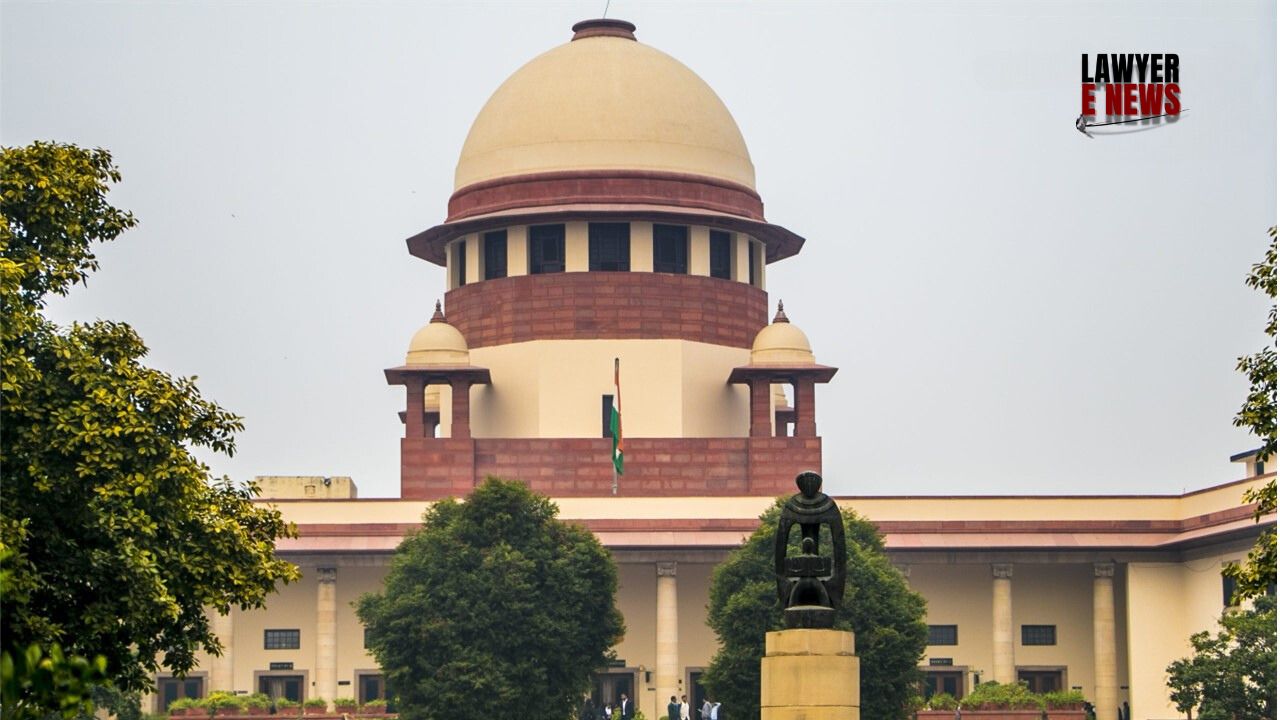-
by Admin
15 February 2026 5:35 AM



On 24 Sep. 24, Supreme Court of India delivered a significant ruling in Sunil @ Sonu Etc. v. State NCT of Delhi, addressing the distinction between murder and culpable homicide in cases involving sudden quarrels. The Court reduced the appellants' conviction from murder under Section 302 of the Indian Penal Code (IPC) to culpable homicide not amounting to murder under Section 304 Part-I IPC, citing the absence of premeditation. The appellants' sentence was reduced to the period already served, over 8 years, and they were ordered to be released immediately.
The incident, which took place on November 28, 2016, involved a dispute between Rahul (PW-1) and Sachin (the deceased) on one side, and Sunil @ Sonu (Accused No.1), his brother Satish @ Chhotu (Accused No. 2), Gaurav (Accused No. 3), and Nitin @ Devender (Accused No.4) on the other. The confrontation escalated into a violent altercation, during which Sachin was fatally injured by knife wounds allegedly inflicted by Sunil and Nitin. The trial court convicted the appellants under Section 302 read with Section 34 IPC and sentenced them to life imprisonment, a decision upheld by the Delhi High Court.
The key legal issue in the case was whether the appellants' actions amounted to murder under Section 302 IPC or should be considered culpable homicide under Section 304 IPC. The appellants contended that the incident arose from a sudden quarrel with no premeditated intent to kill, and that the prosecution failed to explain the injuries they sustained during the fight.
The Court noted several factors casting doubt on the prosecution's case, including the delayed lodging of the FIR by Rahul (PW-1) and contradictions in witness testimonies. Rahul claimed unconsciousness as the reason for the delay, but the Court found his explanation implausible given the circumstances of the case. Further, Shivani (PW-2), another key witness, was found to be an interested party, and her testimony contained inconsistencies.
Sudden Quarrel and Lack of Premeditation: The Supreme Court ruled that the fatal injury occurred during a sudden fight without any premeditation. "There is nothing on record to establish that there was any pre-meditation," the Court noted in its judgment. The altercation escalated in the heat of the moment, and the accused did not act in a "cruel or unusual manner" nor did they take "undue advantage" of the situation, a critical element in distinguishing culpable homicide from murder.
Failure to Explain Injuries of the Accused: Both Sunil @ Sonu and Nitin @ Devender had sustained injuries during the altercation, which the prosecution failed to explain. Medical evidence confirmed these injuries, reinforcing the defense's claim that they acted in self-defense during a sudden fight. The Court held that the prosecution's failure to explain these injuries undermined its case.
Delay in FIR and Witness Credibility: The Court also found the delay in lodging the FIR, over 24 hours after the incident, suspicious. Rahul's (PW-1) conduct and the contradictions in his testimony weakened his credibility. The Court remarked that his explanation for the delay was "not plausible," further casting doubt on the prosecution's version of events.
Conviction Under Section 304 Part-I IPC: In light of the circumstances, the Court ruled that the appellants' actions fell under Section 304 Part-I IPC, which deals with culpable homicide not amounting to murder, committed in the heat of passion following a sudden quarrel. The Court altered the conviction from murder to culpable homicide, significantly reducing the appellants' sentence to the period already served.
The Supreme Court's judgment in this case highlights the critical distinction between murder and culpable homicide in situations involving sudden quarrels. The Court found that the incident arose from a spontaneous fight, with no evidence of premeditation or cruelty, and reduced the appellants' conviction accordingly. The appellants, having already served over 8 years in prison, were ordered to be released immediately.
Date of Decision: September 24, 2024
Sunil @ Sonu Etc. v. State NCT of Delhi
